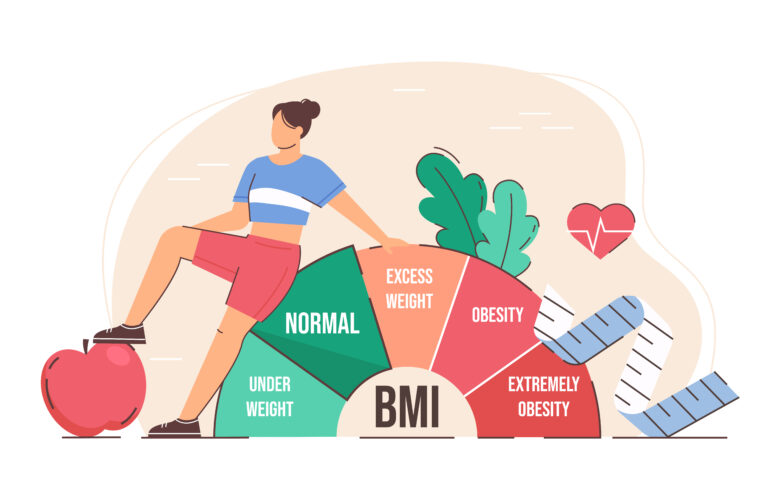I have struggled for many years with my weight. I would start a diet but never seemed to stick to it for long. What little weight I lost would soon be gained back plus some. Using a BMI (body mass index) calculator, my BMI was 27.4. I was more than 30 pounds overweight. I was starting to have health problems.
Being overweight or obese can contribute to various health problems and increase the risk of developing various medical conditions.
Here are some of the common health problems associated with being overweight:
- Type 2 Diabetes: Excess weight, especially around the abdomen, can lead to insulin resistance, increasing the risk of type 2 diabetes. This condition affects the body’s ability to regulate blood sugar levels.
- Heart Disease: Being overweight can lead to high blood pressure, elevated cholesterol levels, and an increased risk of heart disease, including heart attacks and strokes.
- Hypertension (High Blood Pressure): Carrying extra weight stresses the cardiovascular system, leading to elevated blood pressure and increasing the risk of heart disease and other complications.
- Stroke: Excess weight can contribute to the formation of blood clots and plaque buildup in arteries, increasing the risk of strokes.
- Certain Cancers: Obesity is associated with an increased risk of several types of cancer, including breast, colon, endometrial, kidney, and pancreatic cancer.
- Sleep Apnea: Obesity can lead to the narrowing of airways, causing sleep apnea—a condition in which breathing is repeatedly interrupted during sleep.
- Joint Problems: Carrying excess weight strains the joints, particularly in the knees, hips, and lower back. This can lead to conditions like osteoarthritis.
- Fatty Liver Disease: Non-alcoholic fatty liver disease (NAFLD) is where excess fat accumulates in the liver. It can lead to inflammation and scarring of the liver tissue.
- Gallbladder Disease: Obesity increases the risk of gallstones and other gallbladder-related problems.
- Respiratory Issues: Obesity can reduce lung capacity and make breathing harder, contributing to asthma and chronic obstructive pulmonary disease (COPD).
- Digestive Disorders: Being overweight increases the risk of gastroesophageal reflux disease (GERD) and other digestive disorders.
- Depression and Mental Health: There is a link between obesity and mental health issues such as depression, anxiety, and low self-esteem.
- Reproductive Issues: Obesity can affect hormonal balance and fertility in men and women. It can also lead to complications during pregnancy, such as gestational diabetes and preeclampsia.
- Kidney Disease: Obesity is associated with an increased risk of kidney disease and kidney stones.
- Reduced Life Expectancy: Being overweight is associated with a shorter life expectancy due to the increased risk of various health problems.
Time to Get Serious
It was time that I took my weight seriously and reduced my BMI. A lifestyle medicine doctor that I knew had started a free program to help people with diabetes and hypertension. I signed up for his 30 Days to Better Health free program. You receive a daily 5-7 minute video health nugget from a board-certified Internal Medicine and Preventive Medicine specialist, David DeRose, MD, MPH. Dr. DeRose is a practicing clinician and co-author of the best-selling books, “Thirty Days to Natural Blood Pressure Control” and “The Methuselah Factor: Learn How to Live Sharper, Leaner, Longer, and Better–in Thirty Days or Less.”
Each day, you add a new task to your daily routine, such as drinking more water, starting exercising, increasing your exercise program, etc. You continue with the new item each day until the end of the 30 days. The goal is to continue your new lifestyle at the end of the 30 days.
I lost weight during the 30 days and have continued the new lifestyle. It was easy steps and many that I was already doing. I have lost almost 20 pounds so far. I am on my way to a healthier BMI.
It’s important to note that these health risks are not solely determined by weight; genetics, lifestyle, diet, and other factors also play a role. Maintaining a healthy weight through a balanced diet, regular physical activity, and adopting a healthy lifestyle can help reduce the risk of these health problems. If you’re concerned about your weight or its impact on your health, consulting a healthcare professional for personalized guidance and support is a good idea.
Featured Image by redgreystock on Freepik
